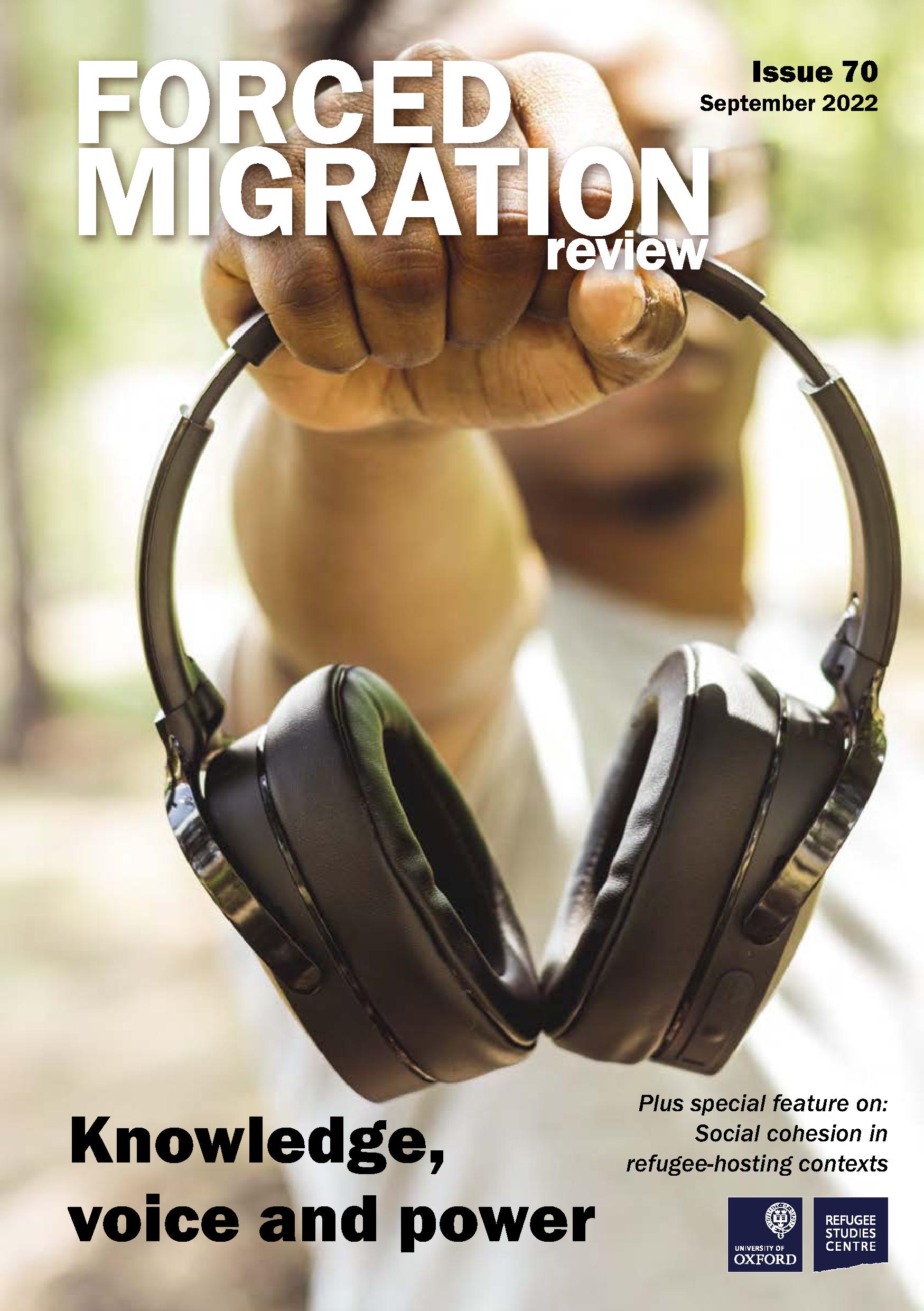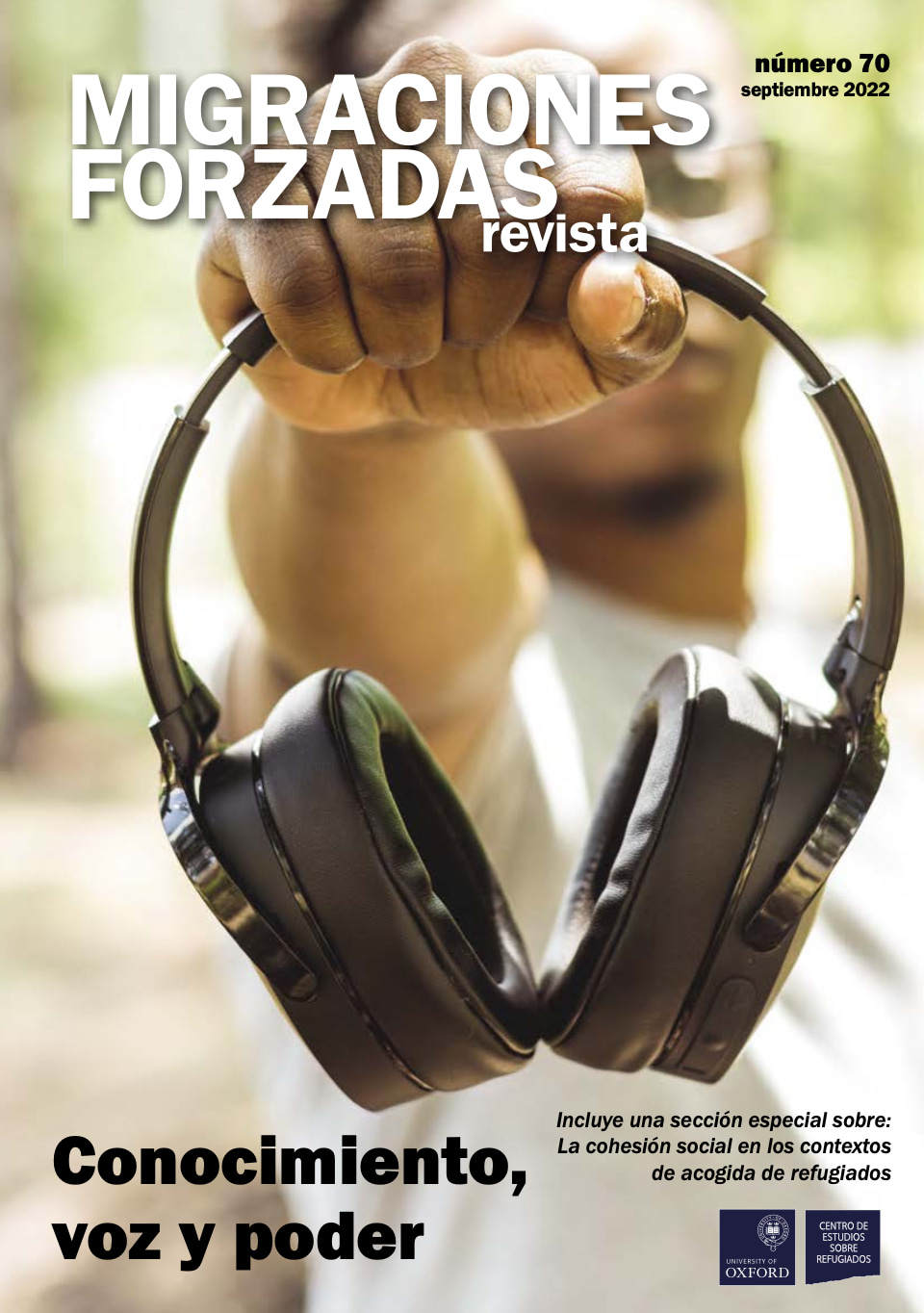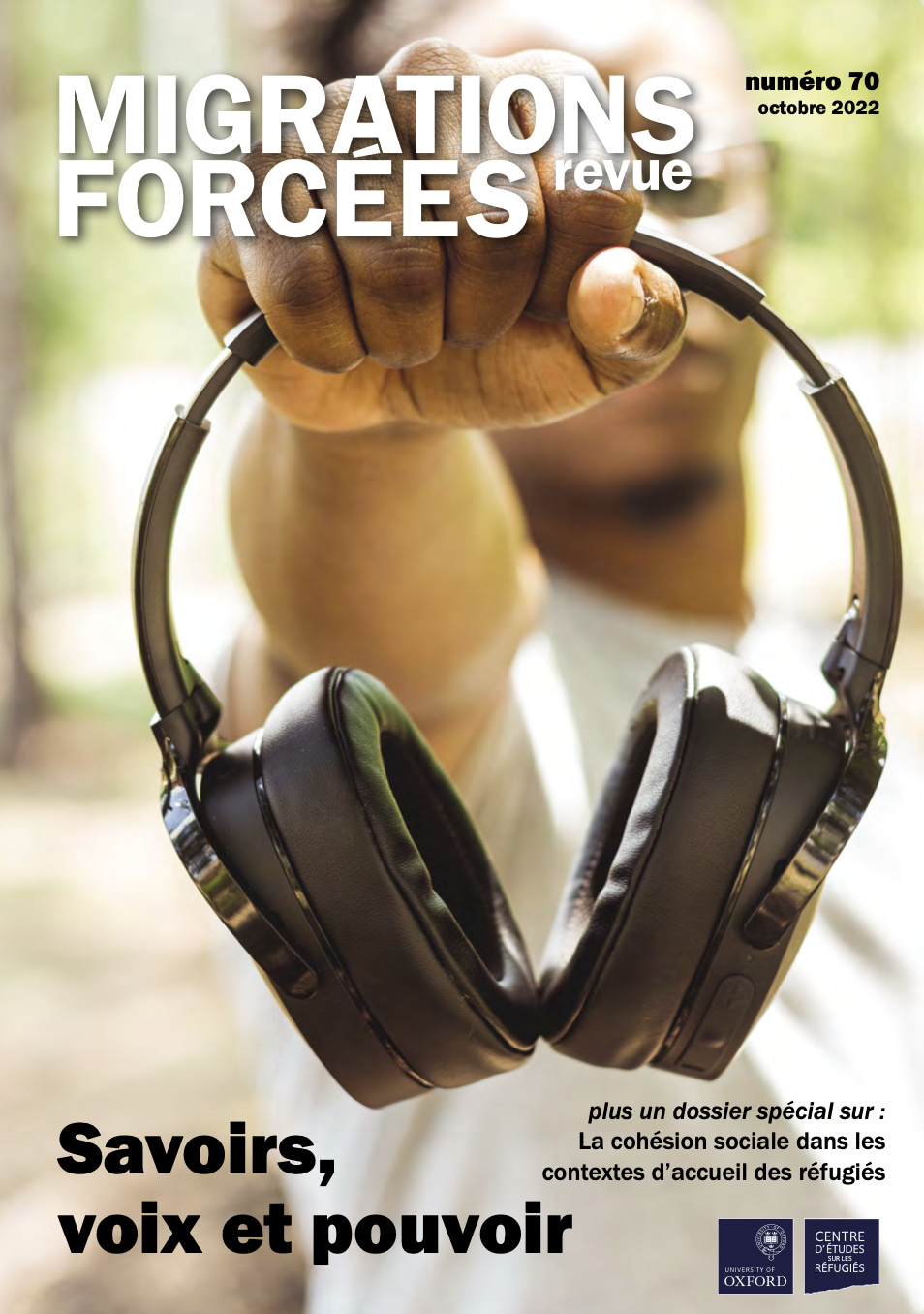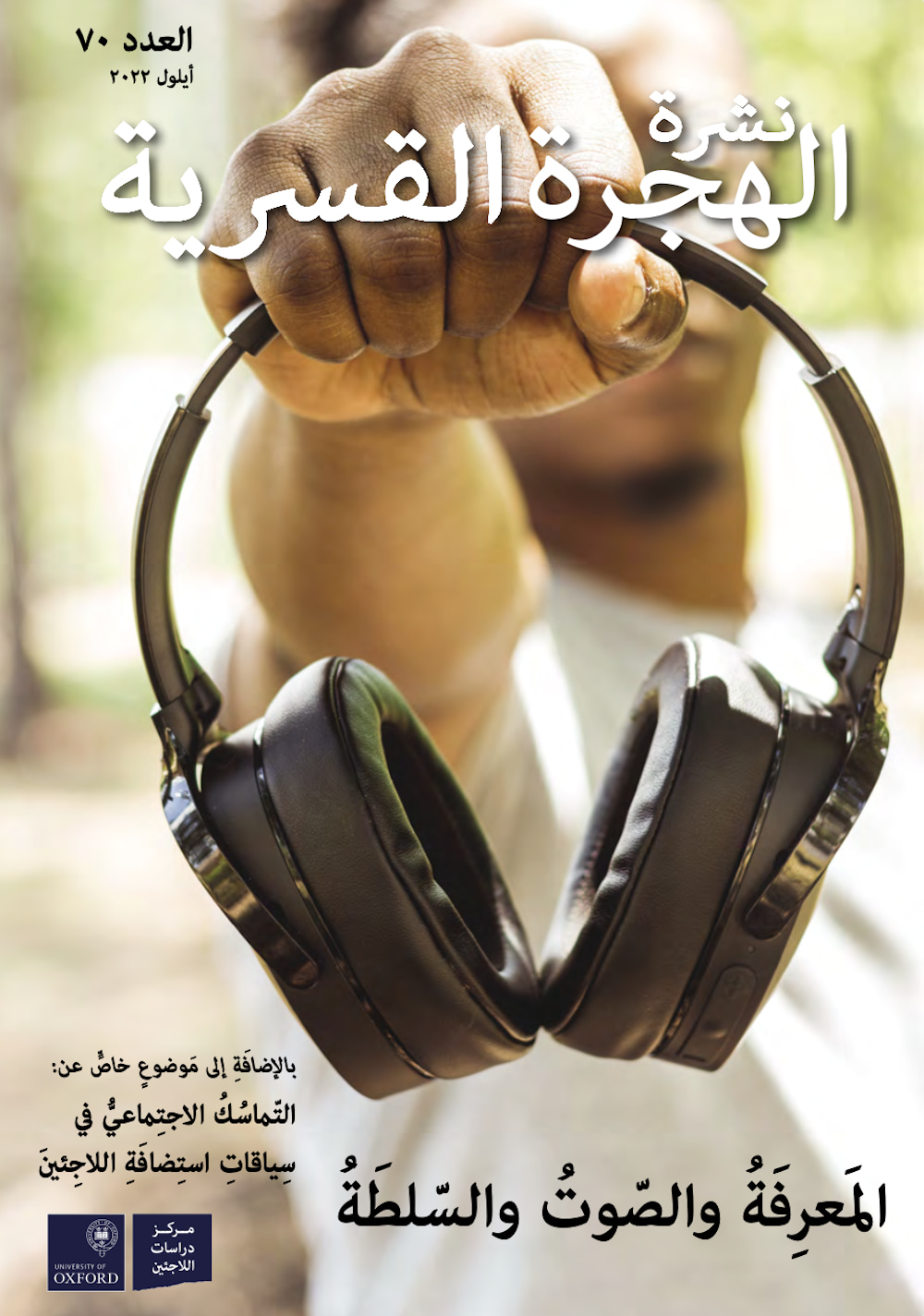FMR 70 – Knowledge, voice and power
People with lived experience of displacement need to be heard. Their perspectives, strategies and solutions should be at the centre of discussions about policy and practice. The authors in this issue reflect on progress made but also on the road still to travel. They challenge attitudes, highlight injustices and make practical recommendations for change.
We are very grateful to the Local Engagement Refugee Research Network (LERRN) for their partnership on this issue and for the generous financial support of both the International Development Research Centre of the Government of Canada and LERRN (funded by the Social Sciences and Humanities Research Council (SSHRC)).
Forced Migration Review issue 70 includes a major feature on ‘Knowledge, voice and power’ exploring issues of representation, influence, privilege, access, discrimination and more.
The issue also includes a feature on ‘Social cohesion in refugee-hosting contexts’, exploring the role of social cohesion in contexts of protracted displacement, with a particular focus on Kenya and Lebanon. It has been produced with the financial support of the Arts and Humanities Research Council, the Foreign, Commonwealth and Development Office, and the Jesuit Refugee Service.



